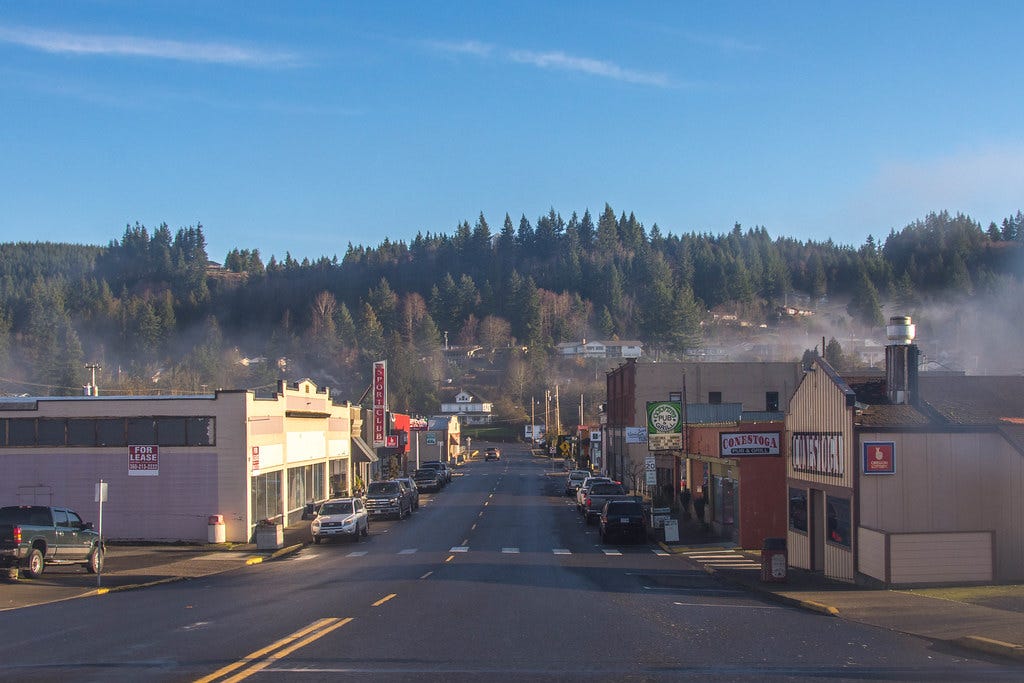Gen Z Isn't Going to Sit on the Sidelines.
When I announced my candidacy and my colleagues warned me against making my age a focal point of my campaign, I smiled politely knowing that I would absolutely not be heeding their advice.
Sabbath is a campaign manager, community organizer, and candidate. She focuses her political activism on the needs of rural Oregon and young voters.

If I have learned anything as a Gen Z candidate for Port Commissioner running in a Columbia County, it is that my candidacy is not about me, or the position I’m running for, but something much greater. To the ruling contingent, who have held office in my county for years or decades, who hand select and groom their successors to maintain the status quo from which they benefit, I am a threat. To the high school and middle school kids, who follow my campaign on Instagram and TikTok, who hear me openly discuss my age not as a point of contention, but as a qualification, and push back against ageist and sexist rhetoric, I am an open door to their future.
Historically, oppression has bred political awareness. If your ability to marry, work, or live safely is decided by a congressional vote, or a high profile Supreme Court case, then you’re more likely to take an active role in advocating for certain outcomes. But what happens when an entire generation is facing mass oppression—when issues of race and gender inequality fill your social media feeds, when milestones that were all but promised to our parents are now merely a day dream for us? A new generation of activists are being born, rejecting the wait-your-turn politics of our forebears, demanding change. And yet, the persistent perception of Gen Z as lazy and uninvolved remains mainstream amongst political players.
Political pundits and civics teachers alike often lament how low voter turnout is amongst younger generations. While some argue that this is a result of disinterest or a culture of apathy, many young activists would assert that the barriers to participation in local government are simply too great for many young folks. There’s an array of systems that exist to gatekeep access to political participation. For example, volunteering for a local committee or anything like that usually requires political connections and ridiculous amounts of free time—things hard to come by in your teens and early 20s. There’s also the fact that most politicians, already older than the median age of their communities, don’t take the time to consult Gen Zers—deemed politically unnecessary and too difficult to relate to. So why does a generation facing some of the most widespread disenfranchisement in recent history have such a low rate of participation in politics?
First, it is important to recognize that while still lower than other age demographics, 18-34 year-olds achieved record high voter turnout in 2020. We can pick up many conclusions from the uptick in political participation, one of which being that the expansion of vote-by-mail systems due to a global pandemic allowed more blue collar workers, students, and young individuals to vote. Another possible factor, also pandemic related, was mass unemployment and economic depression. When the US economy verged on collapse as the result of a global shutdowns, it was college students, hourly workers, and impoverished people who were most heavily impacted. Coincidentally, these are also the groups that tend to have lower rates of voter turnout. The combination of being out of work, more robust voting options, and heightened tension over racial injustice was the perfect storm that allowed a generation of budding activists to sway elections and flip districts.
As we move forward, out of a year-long public health crises, and into a new election season, it is clear why career politicians, special interest groups, and the ultra-wealthy have expended so much effort to prevent the dismantling of systems that prevent young folks, BIPOC, and impoverished people from participating in our political system. Because when we do, things change.
When I announced my candidacy and my colleagues warned me against making my age a focal point of my campaign, I smiled politely knowing that I would absolutely not be heeding their advice. As my opposition floods my comment sections with lamentations about my age, my focus on future generations, and how long I’ve lived in my community, I stand strong in my assertion that I am qualified for this position not in spite of my age, but because of it. I am but one domino in a string of young activists that will dramatically reshape this country. This is not a rebellion against our democracy, but a return to its roots. This Spring, let those roots yield a crop of new political visionaries who will sustain our communities for generations to come.
************************************
Keep the conversation going:
Facebook (facebook.com/oregonway)
Twitter (@the_oregon_way)


